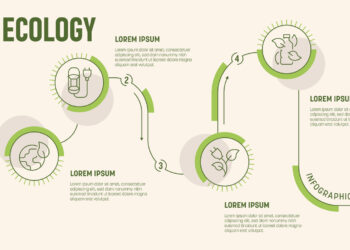
- Image via CrunchBase
As we all know by now, Wikipedia has turned 10. Initially scoffed at, and still serving as a bellwether of Internet acceptance, this major reference work has become indispensable in just 10 years, clearly surpassing — on a global, multilanguage scale — the size, depth, scope, and readership of any encyclopedia ever created by humans.
Perhaps more importantly, it’s an encyclopedia that is improvable — in fact, it likely improves every day, either through corrections, updates with current information, or additional references.
An essay worth reading about this amazing achievement — really, it is an amazing invention — is to be found in a recent Chronicle of Higher Education essay. Most interestingly from an innovation perspective is the correct observation of the essay’s author, Casper Grathwohl, that:
. . . it functions as a necessary layer in the Internet knowledge system, a layer that was not needed in the analog age.
Wikipedia is not an encyclopedia in the traditional sense. It has redefined the reference work itself, and created a new reference layer — one for specialists and generalists alike, a great democratization of information.
Discussion
7 Thoughts on "Wikipedia Turns 10 — Let's Celebrate It!"
One thing I’ve always wondered about Wikipedia’s success is how much of it is dependent on Google? There have long been rumors that Wikipedia content is given special dispensation by Google, leading to search results that nearly always have a Wikipedia entry in one of the top spots. Is Wikipedia so widely used because people prefer it, or is it just a consequence of its search result placement? Here’s a hypothetical: If Google changed their algorithm, and Wikipedia results now only appeared on the second page of search results returned, would it lose its cultural relevance? Would people still seek it out, or would they instead just click on one of the first two or three results on the first page?
What people making these criticisms tend to forget, I think, is how Google’s algorithm works (it’s worth keeping in mind during criticisms that Google favors itself inordinately) — that is, domains that have a lot of incoming links are highly preferred in PageRank. Google has a lot of incoming links. Wikipedia has a lot of incoming links. I think those rumors are paranoid. Since PageRank is basically networked citations, it’s like having good review articles in a known journal — they will get more citations than average.
I suppose it’s a bit of a chicken vs. egg argument, is it highly used because it’s got such a high ranking, or does it have a high ranking because it’s highly used.
But the linked article is interesting in that nearly every site out there falls prey to spam scrapers in Google, except, for some unknown reason, Wikipedia, which is likely more often scraped than any other site.
I always like the observation in chicken-and-egg arguments that eggs came first — in fish. That is, there’s a natural solution to a supposed mental conundrum. In Wikipedia’s case, I remember a few years ago when Wikipedia began creeping up in Google results, and then the “tipping point” came, and it dominated. I think it was in 2005-2006 or maybe one side or the other of that. I’d have to look it up on Wikipedia.
Two points about Casper’s Chronicle piece. First, if you are a true believer in Wikipedia and UGC, then Casper’s pyramid, which puts peer-reviewed academic literature at the top, has to be inverted. Second, the traffic Wikipedia generates for legacy publications and services is now appreciated by many, who write and edit Wikipedia precisely to generate traffic to their own sites. Wikipedia, in other words, in part is being corrupted into serving as a marketing vehicle for other publications.
It’s interesting that corruption follows us in all media. I’m thinking particularly of the backrub book blurbs authors have given each other for decades, the literary journals run to promote an artistic clique, the free books sent to arts and reviews editors along with nice tickets and other favors, and so forth. Using media as marketing is nothing new, I guess.
Being big fans of Wikipedia, DOE OSTI has two popular STI aggregation products that search it whenever a user searches the federated document databases. These are http://worldwidescience.org and http://www.science.gov/. In addition to a document list we give the user links to related Wikipedia articles, whether they want them or not.
This creates a lot of robotic traffic to Wikipedia. I wonder if others are doing this as well and if it makes any difference in the Google rankings?



